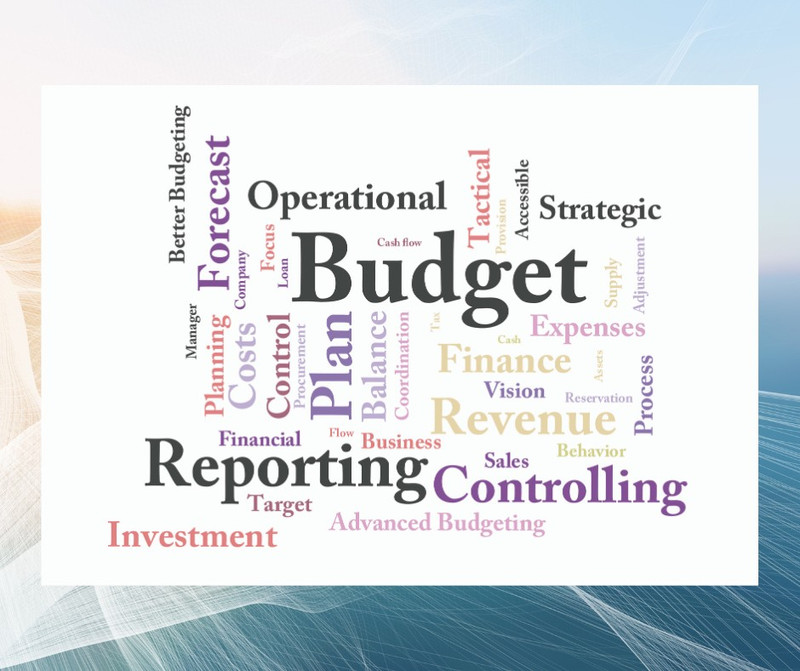Business Budgeting Made Easy

When you first become a business owner, especially as an entrepreneur, you may wonder whether or not you need to create a business budget. You might already have your start-up capital, equipment, and business know-how. You may have already done your market research and know your future clients well. Success is just around the corner; you only need to provide the products and services to take your business to the next level.
However, if you want to increase your chances of success, creating a budget is necessary. A budget will help you continue making successful financial decisions, especially during crucial times.
Let’s look at what a budget is, when and why it is necessary, what type of businesses need it, and how to create one without spending too much of your valuable time.
What is a business budget?
A business budget is a financial plan that outlines a company’s estimated revenue and expenses over a specific period, such as monthly, quarterly, or annually. It is a valuable financial management tool that allows businesses to track and predict revenue, expenses, and profit. Having a budget gives business owners the ability to allocate resources strategically.
When and why do small businesses need a budget?
Financially successful people have one thing in common — they understand the importance of keeping track of their money. It sounds logical and reasonable, but it means giving time and priority to something that might not seem necessary to the business owner who already has a long list of priorities. After all, you can’t make money if you are not operating your business.
Here are some critical circumstances and reasons why businesses need a budget:
Start-up Phase — a budget helps you determine and acquire the initial and subsequent funding, set financial goals, and provide a roadmap for managing expenses from the very start.
Financial Management and Control — creating and regularly updating a budget allows you to control business expenses, identify areas of overspending, and make informed decisions to stay within financial limits.
Expansion or Growth — this is a critical time in the lifecycle of any business. A budget helps you to preplan and allocate resources for expansion activities, such as hiring new employees, opening new locations, or investing in technology upgrades.
Seasonal Fluctuations — many businesses experience seasonal fluctuations in demand and revenue. A budget helps prepare for lean seasons by setting aside emergency funds during peak periods to cover expenses during slow periods.
Economic Changes — we can’t always predict changes in the economy. Still, a budget can help you analyze your company’s cash flow, make necessary adjustments, and plan for potential financial challenges.
Major Investments or Purchases — a budget helps assess the financial feasibility and plan for the associated costs when considering significant investments, such as purchasing equipment, vehicles, or property.
New Product or Service Launch — this step requires careful budgeting to allocate resources for research and development, marketing, and production costs. A budget helps estimate potential returns and minimize risks when introducing a new product or service.
What type of small businesses need a budget?
Chances are you are anticipating this answer — regardless of industry or size, every business can benefit from a budget. Budgeting is a fundamental aspect of financial management that helps business owners — like you — plan, track, and control business finances.
How do I create a budget for my small business?
1. Keep your personal and business accounts separate. Doing so allows for clean bookkeeping, gives you the best representation of your company’s finances, and saves you time and money in the long run, as your tax accountant will require you to sort it all out.
Choose your budgeting tool, such as a spreadsheet template or accounting software, so you don’t have to create one from scratch.
Create categories for your monthly revenue streams — for example, sales of goods or services.
Keep track of all your expenses. You can identify costs by looking at your bank and credit card statements, and brainstorming projected costs.
Categorize your expenses into two sections: fixed and variable. Fixed costs like rent, insurance, and subscriptions stay the same month-to-month. Variable expenses change based on usage, such as utilities, meals, and maintenance and repairs.
Calculate your profit by subtracting total expenses from total revenue.
Now, you can make informed decisions regarding streams of revenue and expenses. Is more capital required for you to stay in business? Which goods or services are generating the most revenue? Can any of the costs be reduced? Do you need to make any adjustments?
West to East Business Solutions is here for you if you have any questions on how to get started on budgeting. We are also happy to assist you with any level of accounting and financial planning. Please call for a free consultation today at (602) 821−7516 or email us at .
18.12.2023
